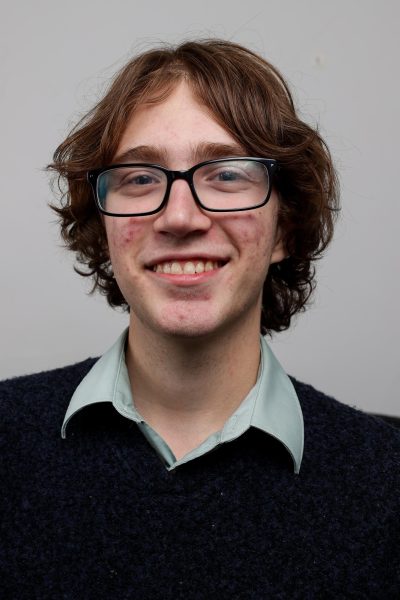On Thursday, Nov. 21, President Deana Porterfield delivered a presentation to the faculty and staff of Seattle Pacific University detailing the state of SPU’s budget, and what it means for the university going forward. As multiple staff members were seen lightly crying at the uncertainty ahead, one thing was clear — the future is precarious for faculty, staff and students at SPU.
SPU is hoping to consolidate from six schools to three schools, meaning that 19 majors* will no longer accept new students starting this winter. It is currently undecided what the consolidated schools will look like but it is certain that programs, faculty and staff will be cut.
The university’s restructuring comes in light of a continued loss in profits. Despite heavy cuts over the last two years, revenue has declined by 31% in the last three years. The university needs to increase revenue by 31.7 million dollars to be profitable. SPU hopes to bring the deficit down to 26.7 million dollars by the end of 2025. Though Porterfield was quick to explain that liberal arts schools around the country are similarly struggling, but there was no explicit mention of how the lawsuit surrounding LGBTQ+ hiring practices has affected student enrollment.
Porterfield, while maintaining an engaging and relatively cheery composure throughout most of her presentation, was wiping tears from her eyes once a staff member asked how they could be praying for her.
“It’s not for me, it’s for us,” Porterfield said. “Each of you love this place and have given years of service to our students. I just jumped in recently and it’s been a very hard season at this institution. We are doing this because we believe SPU needs to be here and we need to be here going forward to continue this mission.”
Students were officially informed of the changes to their majors via an email that was sent during Porterfield’s presentation, though some professors warned their students ahead of time.
While SPU administrators say they will allow students to finish the majors they started in, it is clear that the next four years are going to see those programs receive less support. Second-year junior-in-standing Klayton Scuito, a history and social justice pre-law double major, had both of his majors cut.
“I’m too far into my major to switch schools without it being a huge financial burden,” Scuito said. “So, I’m kind of forced to get a half baked degree or go into financial peril.”
According to Porterfield, executive staff discovered that numbers reported in the spring were incorrect, making previous plans to balance the university’s budget by 2025 or 2026 impossible. While the university had not been fully aware of the extent of the budget crisis until recently, not announcing these changes before the beginning of the year has raised concerns of the university purposefully hiding information. Since students were not invited to the budget meeting, most lack the full context.
“Why did they do this so sneakily so we can’t transfer,” Scuito said. “I would have transferred a year ago if I knew this would happen.”
Porterfield intends to meet with the students on Monday, Nov. 25 to answer questions. According to an email sent to students, the deans of the university’s six schools with impacted majors will also reach out and schedule individual meetings with the afflicted students.
Faculty contracts run through June, but the school reserves the right to cut staff at any time. It is currently unclear which employees will be cut in the following year, but Porterfield made it clear that big changes need to happen to compensate for SPU’s student body size.
“What we know is that when we look at healthy universities is that universities spend about 65% of their revenue on personnel,” Porterfield said. “We are right now at 88% percent. It is not sustainable for our institution, and we can’t grow fast enough to make that happen. We have a structure that’s built for a much larger university. So [there are] departments that need to be consolidated and come together.”
Upon receiving a question from a staff member, Porterfield assured the crowd that anyone getting cut will be given a notice at least two weeks in advance, though she hopes to let staff know sooner.
Porterfield also detailed potential avenues towards profitability. One method is through selling property around campus. SPU has already sold Camp Casey, something they have been attempting to do for decades. Additionally, they also plan to change what new programs will be offered at SPU going forward.
According to Porterfield, the future of SPU’s offerings lie not in what students currently want, but what can entice future students.
“The programs have got to be programs for students that are not yet here,” Porterfield said. “We need non-traditional programs.”
The university’s long term strategy for growth is to cut down programs and gradually build them up over time. Associate Professor, and Chair of English and Cultural Studies April Middeljans is skeptical.
“There’s this argument that we will pare down to the profitable programs and we’ll get some extra money that will help us build again,” Middeljans said. “These are people who often turn down more lucrative jobs in different places, especially in the humanities, to work for SPU. When you cut those committed people, even if we were able to rehire and rebuild again in however many years, it’s going to take a long time to get people with that experience, with that commitment.”
*The majors that will no longer accept new students are: Art History, Applied Math, Cellular Biology, Molecular Biology, Bachelors in Chemistry, Christian Theology, Computer Engineering, International Sustainable Development, History, Information Systems, Journalism, Life Sciences, Nutrition and Dietetics, Food and Nutritional Sciences, Philosophy, Physics, Social Justice, Cultural Studies, and Special Education.
Students whose majors will no longer accept new students are strongly encouraged to attend the meeting with Porterfield at noon on Monday, Nov 25, in Upper Gwinn.


















































































Janette Plunkett • Nov 25, 2024 at 12:43 pm
Vinny, I hope you’ll follow up with students after they’ve had the meeting with President Porterfield and their Deans. It seems premature to reach conclusions about the quality of teach-out degrees before those meetings.
And isn’t this announcement the result of the strategy publicly released over a year ago, e.g., see the Seattle Times, 6/16/2023 article “Seattle Pacific University announces 40% cut to programs, steep layoffs”.
Matt • May 5, 2025 at 12:23 pm
No, these are new cuts on top of those from earlier. The cuts detailed in June 2023 were eliminated about 13 majors/programs, and 60+ faculty who were cut or took voluntary severance. These in 2024-25 are to another 19 majors, and about 23 fulltime (mostly tenured) faculty. So in the span of about 2.5 years, SPU has cut 36 majors/programs and over 80 faculty (down from about 200 faculty just 3 years ago).
Emma Brown • Nov 23, 2024 at 6:02 pm
I feel terrible for all of the faculty who will lose their jobs because of this. SPU becomes more of a shell of itself every day.